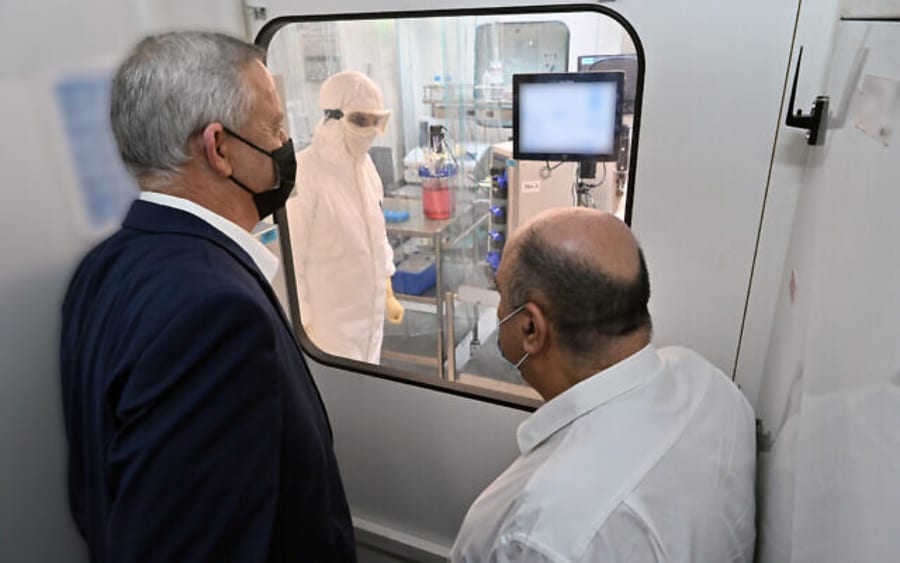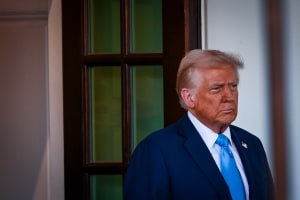Israeli state comptroller blasts the ‘wasted millions’ spent on Israel's first attempt at COVID-19 vaccine
Delays and cost overruns caused Israel's early attempts at creating a vaccine to be abandoned

An annual report released on Wednesday by Israeli State Comptroller and Ombudsman Matanyahu Englman, contained an entire section on Israel’s failed COVID-19 vaccine.
The vaccine being developed by Israel's Institute for Biological Research (IIBR) was one of the first to be announced when the coronavirus pandemic began, however, it was never released to the general public.
Englman reported that the project-requirement report called for NIS 62.6 million (about $17.2 million USD) in funding and the need for an approximately 50 people to be involved. The estimates did not include a budget or specific timeframe to upgrade the research facility in order to meet the required Good Manufacturing Practice (GMP) standards. It also omitted budget estimates based on the time needed to conduct clinical trials.
Englman said the omissions were intentional in order to acquire approval faster.
“The urgency at the start of the pandemic can’t justify presenting an incomplete view of the project's data, requirements and procedures for several months,” Englman wrote in his report.
The Institute for Biological Research is under the authority of Israel’s Defense Ministry. However, the ministry never appointed an oversight committee for the project.
Englman accused IIBR Director Shmuel Shapira, who resigned in December after the project was abandoned, of making a “false representation of progress and costs, when the reality was completely different.”
Englman also called into question claims that the vaccine was effective.
His report noted that “one of the world’s largest pharmaceutical companies conducted a clinical trial on a vaccine using the same platform and a similar dosage as the one developed by the institute.”
However, Englman said, the project was abandoned in January 2021, when “the company announced that the vaccine did not generate a sufficient immune response.”
Others pushed back against the comptroller's conclusions.
Israeli Defense Minister Yoav Gallant, who was not in charge of overseeing of the vaccine development project at the time, said, “The decision to embark on the development of an Israeli vaccine, when there was no vaccine in the world – and there was no certainty that, even if a vaccine were developed, Israel would be able to benefit from it – was reasonable.”
Gallant noted that the first attempts at the Israeli-developed vaccine passed two rounds of clinical trials but was abandoned due to the population’s high level of vaccination with the Pfizer-BioNTech.
“The achievements of the Biological Institute are important and worthy even on an international scale,” Gallant affirmed.
Amos Panet, a professor of biochemistry and molecular biology at Hebrew University of Jerusalem praised the institute's efforts.
“They have excellent scientists and they worked day and night to achieve the goal of developing the Israeli vaccine,” said Panet, who was on the organizing committee of the vaccine-development team. He attributed part of the IIBR's failure to develop the vaccine as quickly as other companies to a disparity in funding.
“As far as the resources they got from the government, they were not very large, because you know President Trump gave six American companies $2 billion each for developing different platforms for a vaccine,” Panet said. “Nobody knew that Pfizer would end up with a successful vaccine, so the Biological Institute chose the right approach for developing a vaccine.”
The Israeli vaccine was demonstrated to be successful, according to Panet, and even had fewer side effects than the Pfizer vaccine. Its progress, however, was rendered irrelevant following the success of the Pfizer vaccine.
Israeli Prime Minister Benjamin Netanyahu committed his financial backing to the Pfizer vaccine to get Israel out of the pandemic first.
“We came out of COVID first,” Netanyahu said in a filmed interview, describing his meeting with Pfizer CEO Albert Bourla. “I persuaded him to give tiny Israel the necessary vaccines to get us out first from the COVID [pandemic].”

The All Israel News Staff is a team of journalists in Israel.














